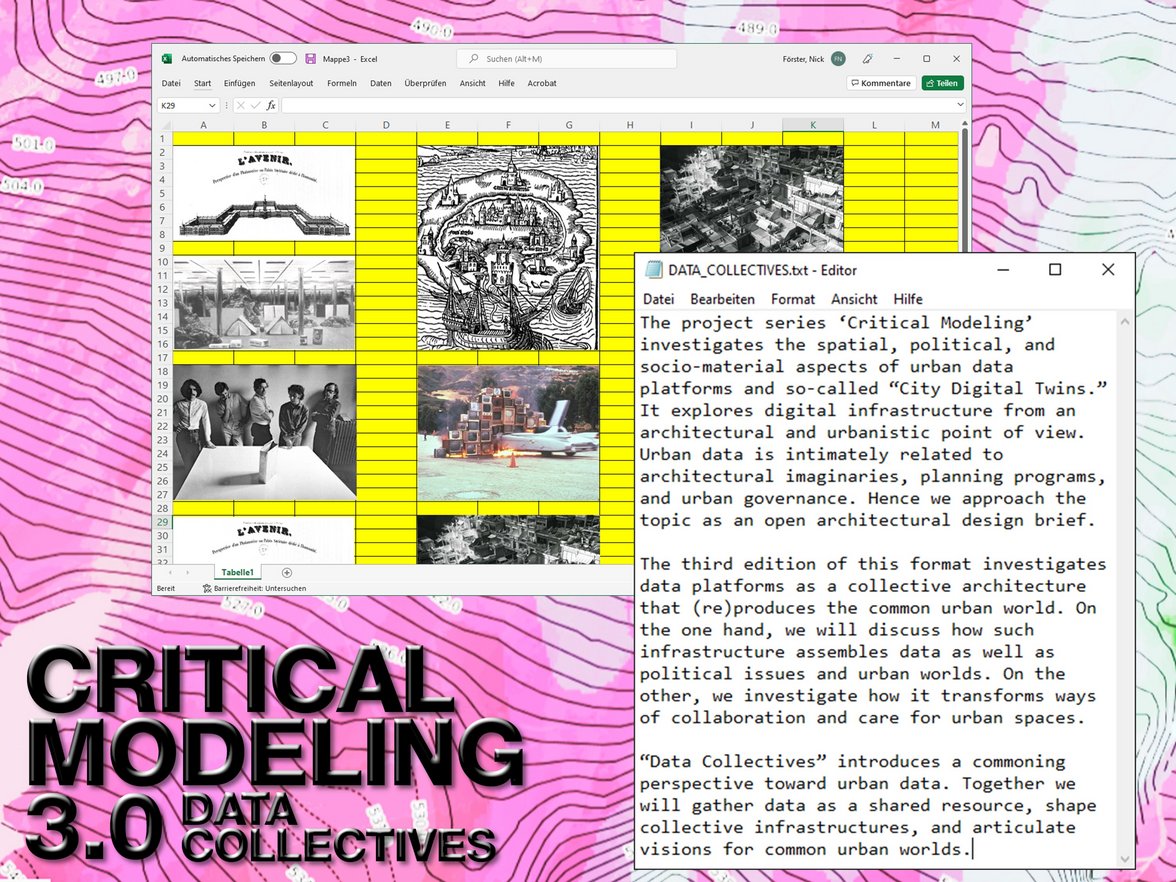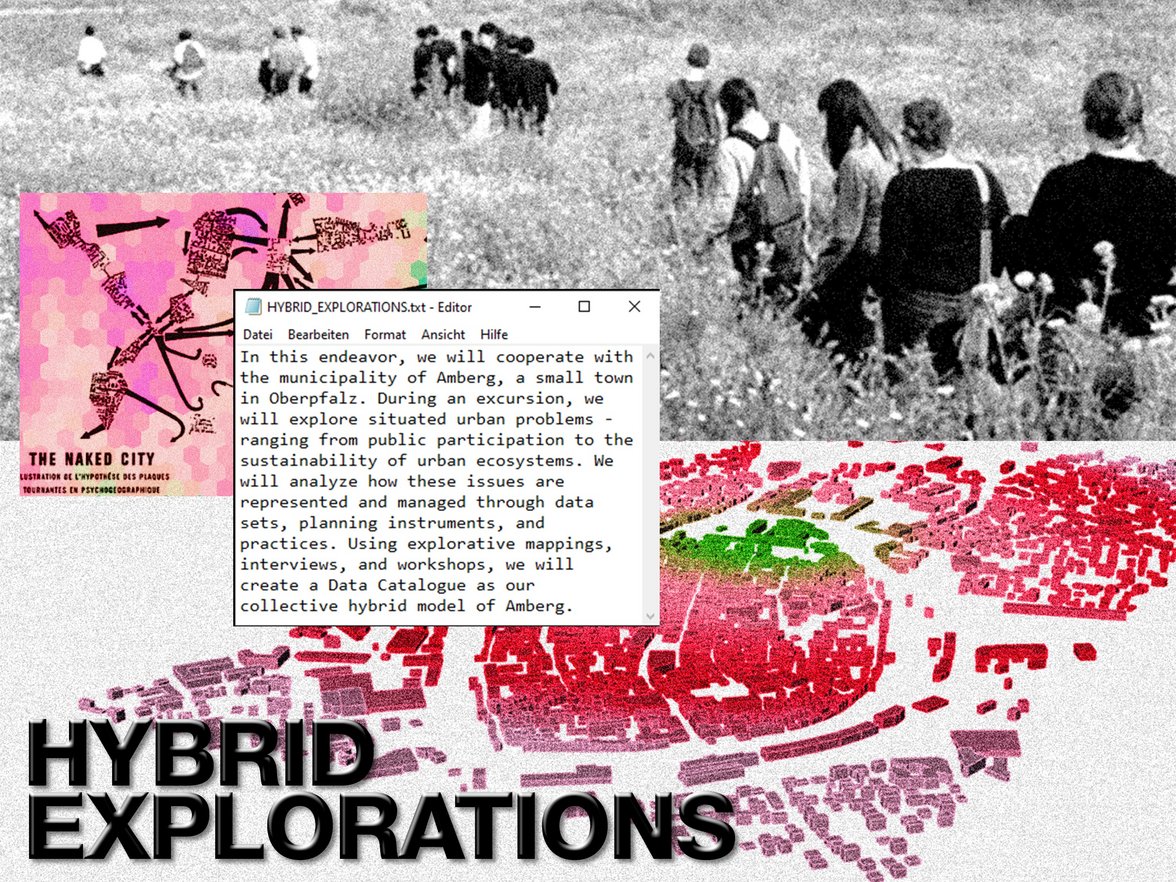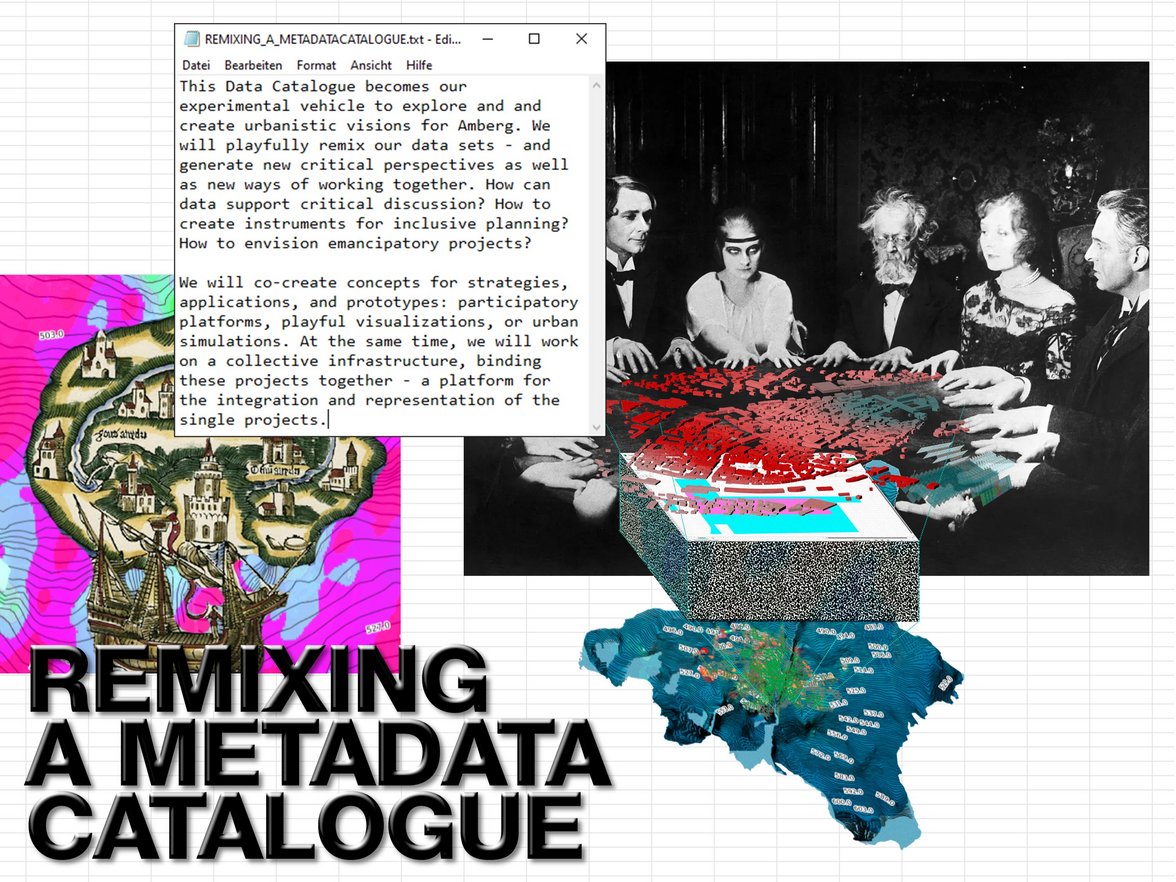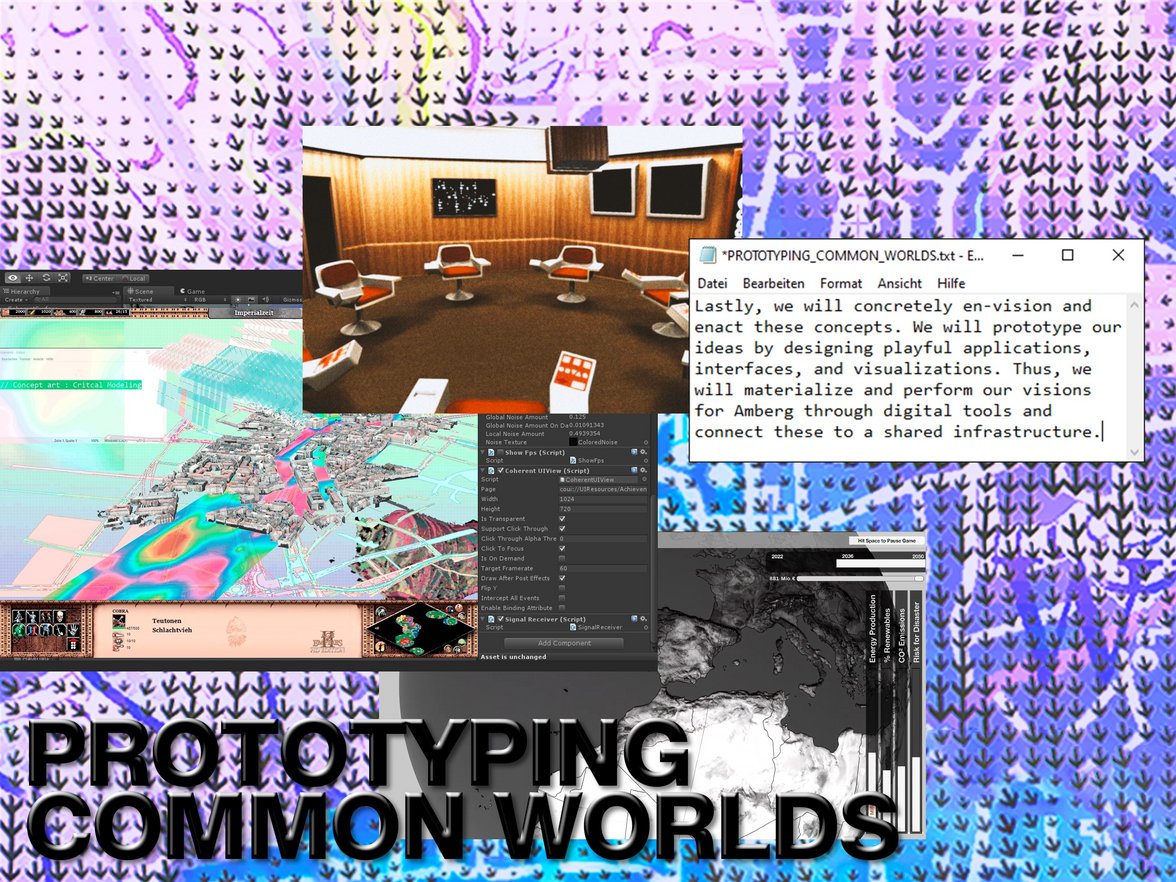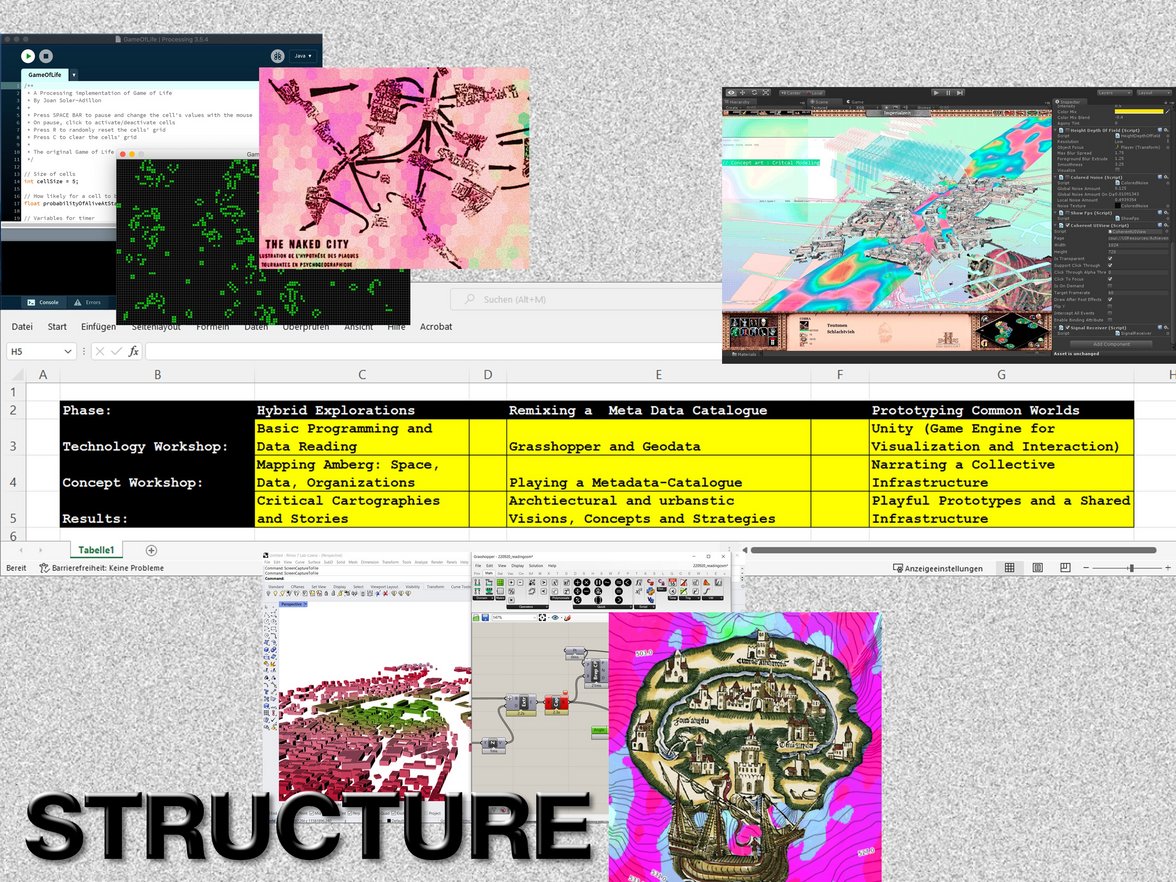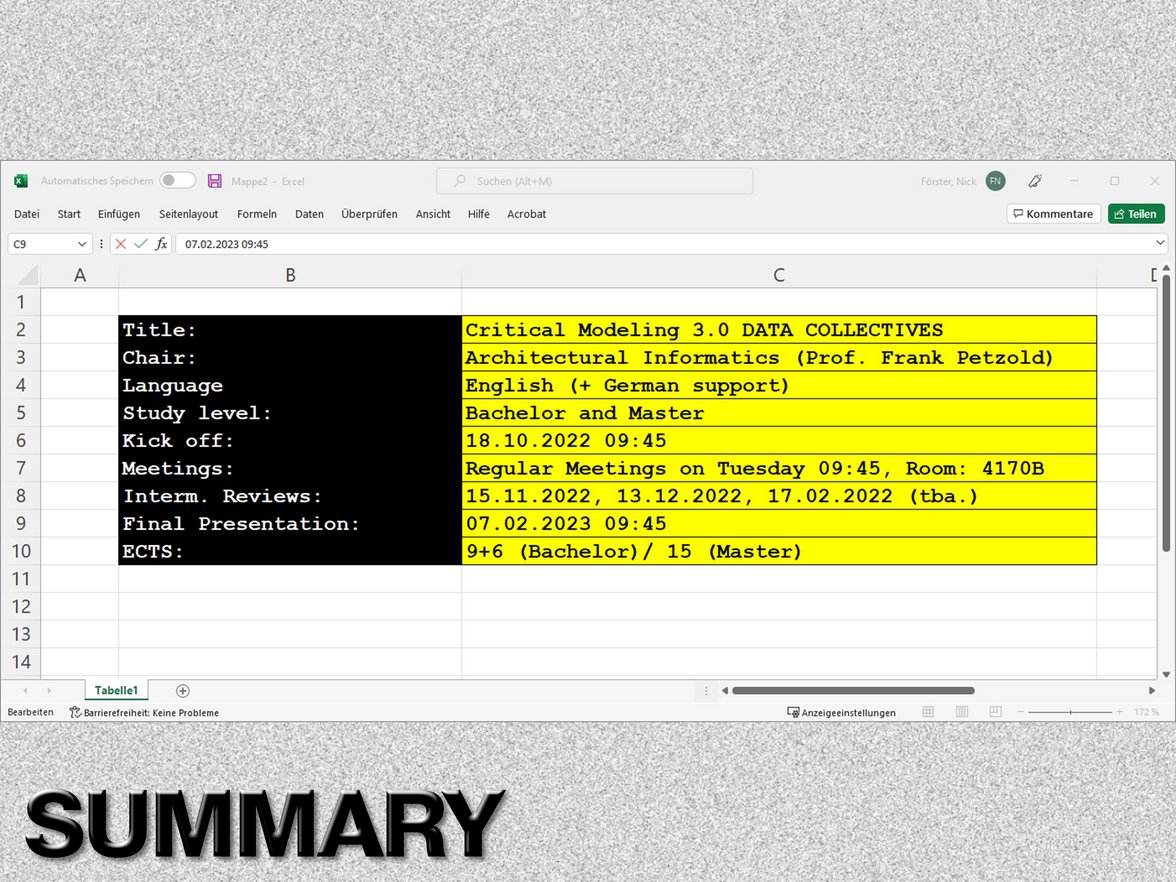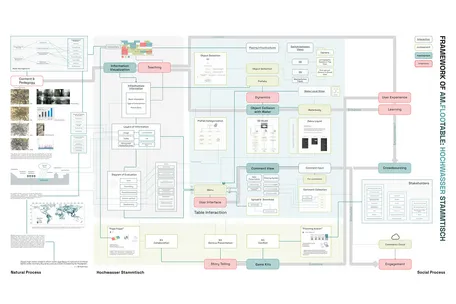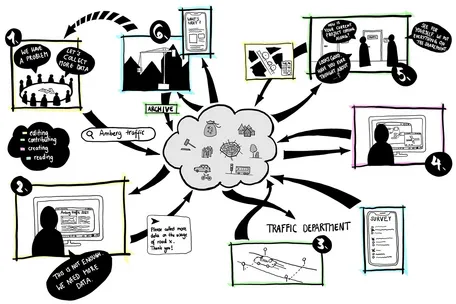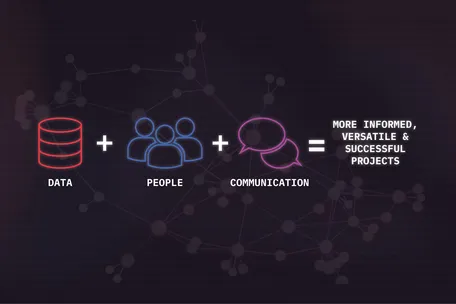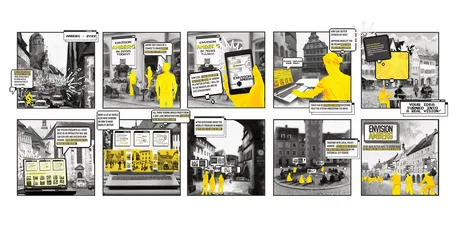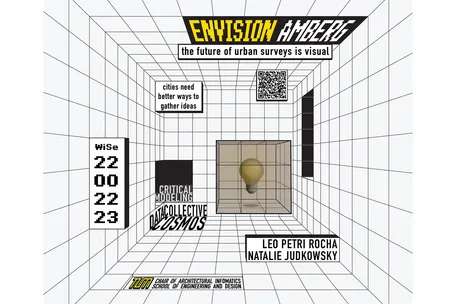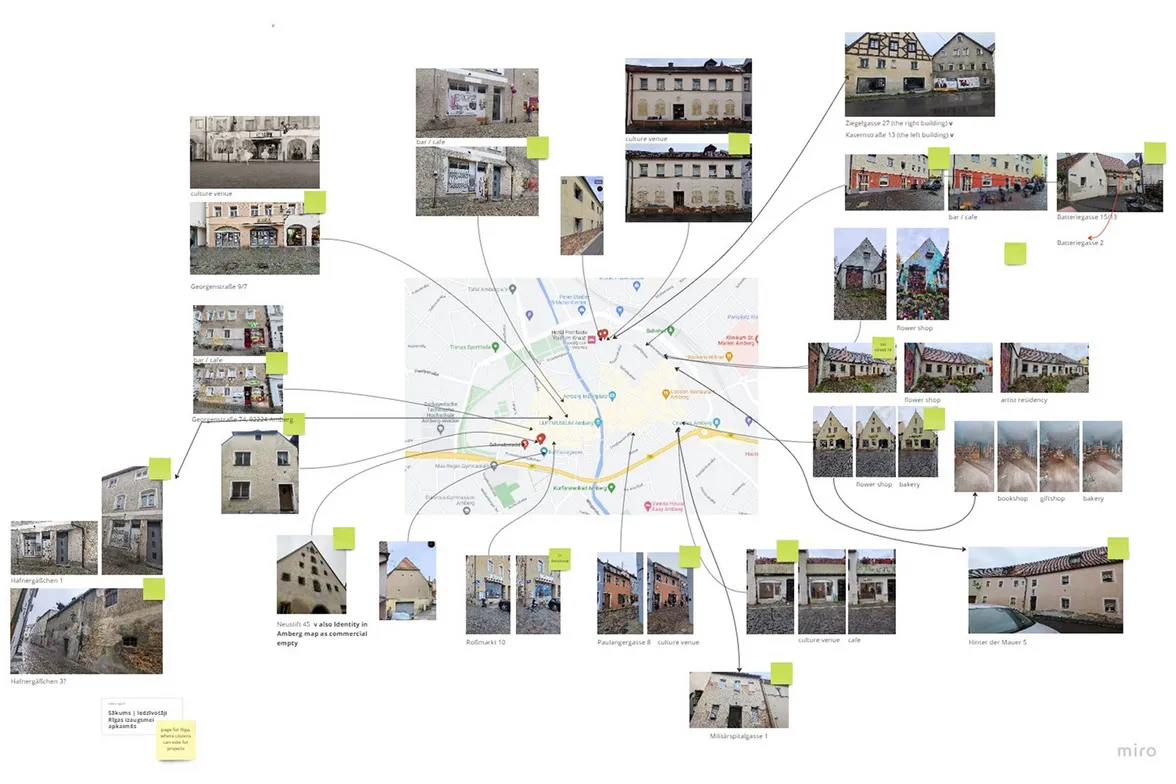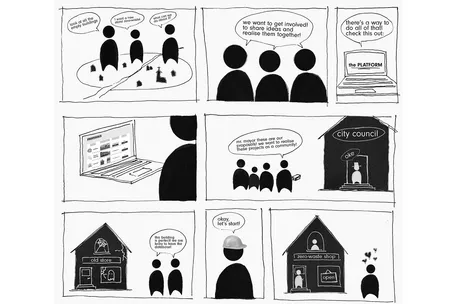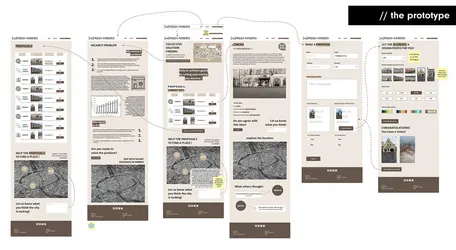Critical Modeling 3.0: Data Collectives
Projekt im Wintersemester 2022/23
Tutors: Prof. Dr.-Ing. Frank Petzold, Ivan Bratoev M.Sc., Nick Förster M.A., Dr.-Ing. Gerhard Schubert
The project series ‘Critical Modeling’ investigates the spatial, political, and socio-material aspects of urban data platforms and so-called “City Digital Twins.” It explores digital infrastructure from an architectural and urbanistic point of view. Urban data is intimately related to architectural imaginaries, planning programs, and urban governance. Hence we approach the topic as an open architectural design brief.
The third edition of this format investigates data platforms as a collective architecture that (re)produces the common urban world. On the one hand, we will discuss how such infrastructure assembles data as well as political issues and urban worlds. On the other, we investigate how it transforms ways of collaboration and care for urban spaces.
“Data Collectives” introduces a commoning perspective toward urban data. Together we will gather data as a shared resource, shape collective infrastructures, and articulate visions for common urban worlds.
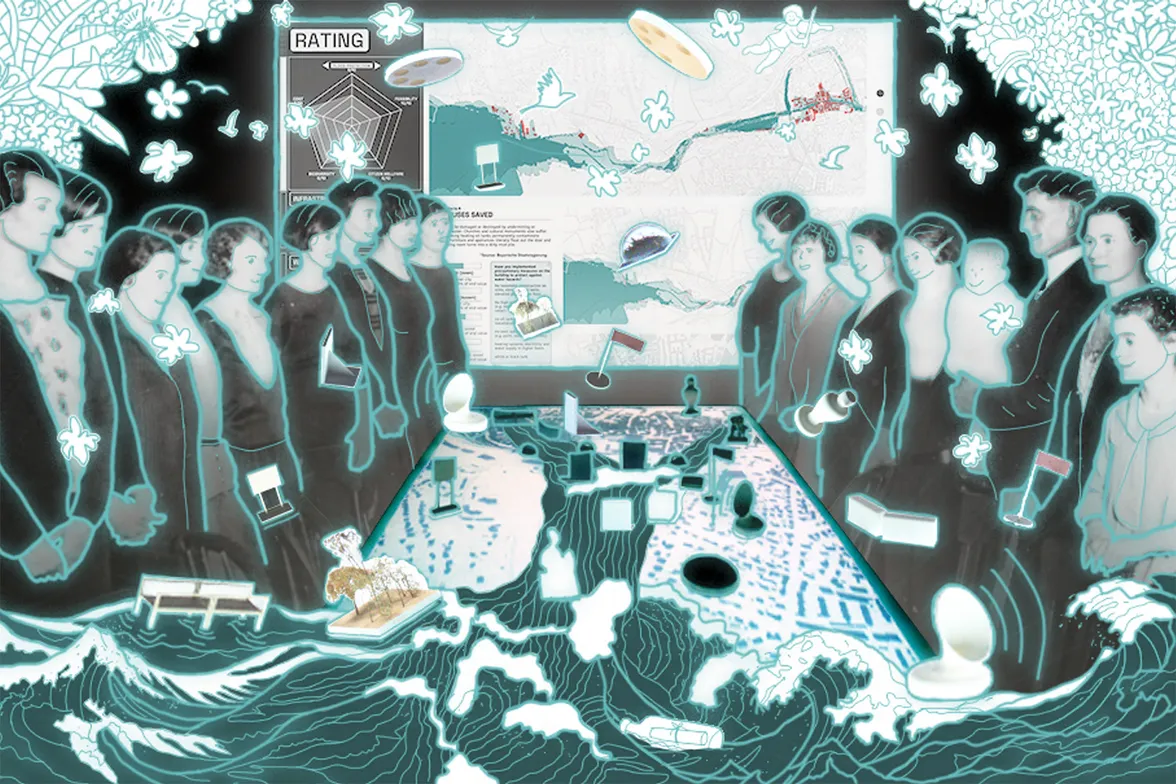
Am.FlooTable: Hochwasser [Am]Tisch
Simon Bothe, Ziyue Chen, Shachar Katzir, Yi Zhou
An interactive table designed to enhance the learning experience on flood-water management in Amberg. Our revolutionary tool provides a comprehensive demonstration of the effects of floods from upstream to downstream.
By interacting with our platform stakeholders would deepen their knowledge on water management and enable more collaborative and understandable approach on flooding, which will eventually benefit all the stakeholders.
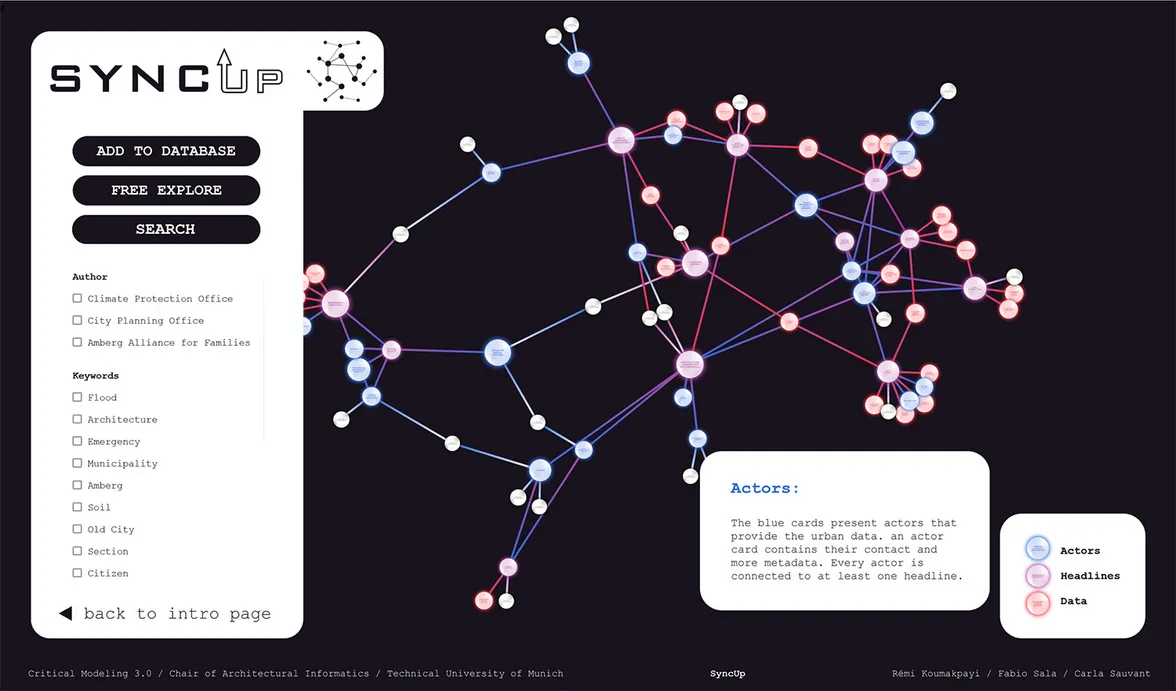
SyncUp
Rémi Koumakpayi, Fabio Sala, Carla Sauvant
The issue tackled by the project is the puzzle of data collaboration within the city of Amberg. During our trip to the city, we had the chance to interview and discuss with the city officials. It was during those interviews that we recognized a pattern of mismanagement of data in the stories that were told. The way the data is presently scattered around creates an environement where people need to play “the puzzle game” in order to find what they need. This happening numerous times makes every workflow more tedious on top of using the time of other departments helping you in your search. This environment also allows for the loss of already extracted data. This can lead to double work and even having the projects continue without some useful information.
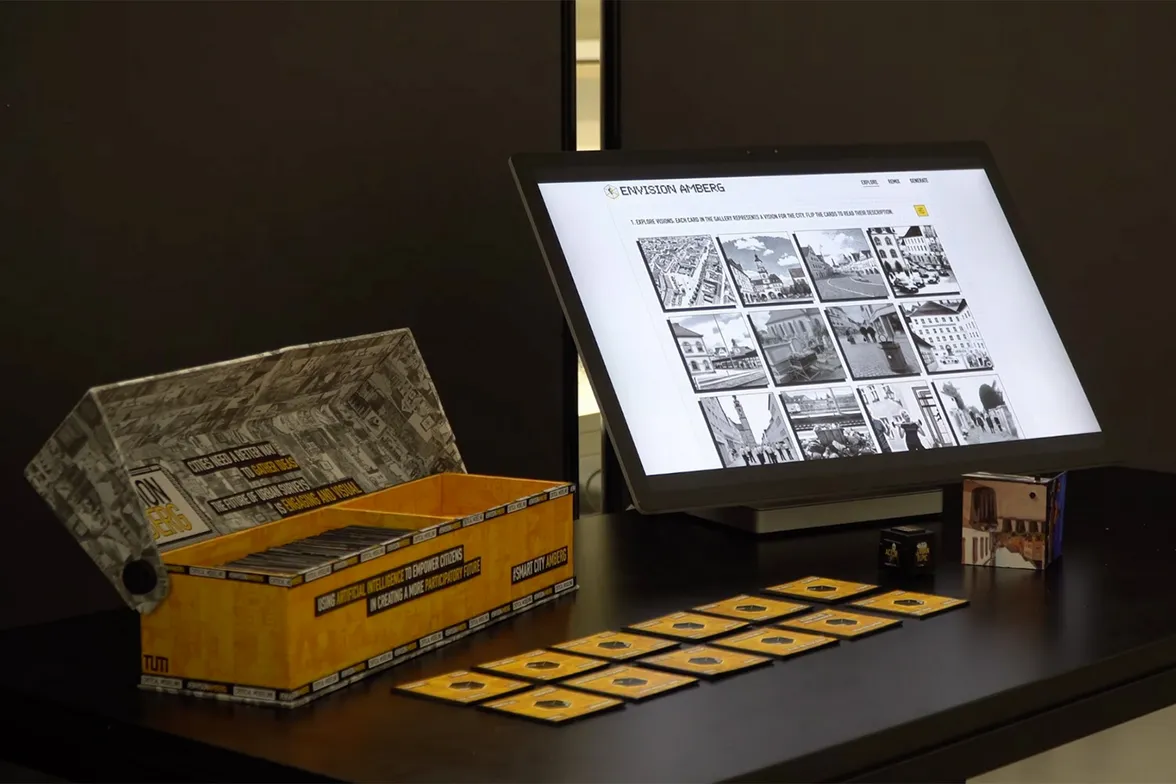
ENVISION AMBERG
Leo Petri Rocha, Natalie Judkowsky
Envision Amberg is a prototype of a platform, which aims to bridge some of the challenges that urban surveys may entail. Its purpose is to encourage citizens to interact and engage not only with the municipality but also with fellow peers. Moreover, its goal is to inspire users to generate creative intersections between different urban dimensions and submit new ideas.
[re]fresh Amberg
Sabīne Asere, Ilinca Bucur, Lotem Patt
The idea behind the platform is to provide a tool and an opportunity for the citizens to get involved and express their desires for these vacant spaces. The platform's main goal is to make citizens engage in the city's development, which is described in the storyboard below. Every Amberg inhabitant can express their visions and desires for rehabilitating the vacant spaces that have been uploaded to the database.
